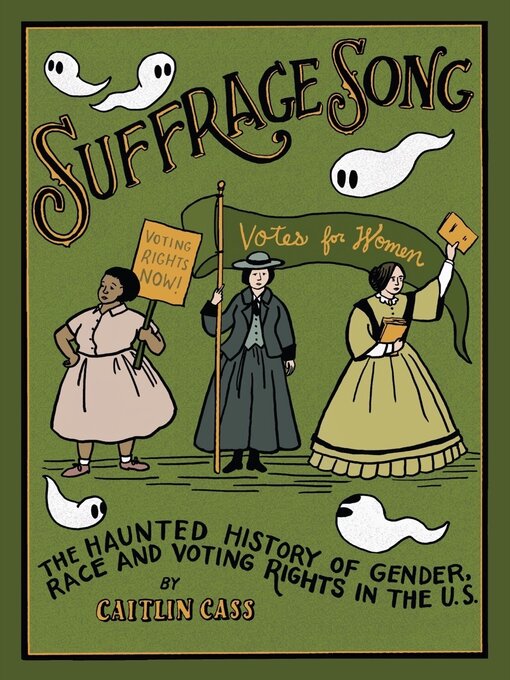New Yorker contributing cartoonist Caitlin Cass traces the fight for suffrage in the U.S. from the 1848 Seneca Falls Convention to the Voting Rights Act of 1965. This intersectional history of women and voting rights chronicles the suffrage movement's triumphs, setbacks, and problematic aspects.
Best Art Books of 2024, Hyperallergic
"She put in her work, but there's so much left to do." Begun in the Antebellum era, the song of suffrage was a rallying cry across the nation that would persist over a century. Capturing the spirit of this refrain, New Yorker contributing cartoonist Caitlin Cass pens a sweeping history of women's suffrage in the U.S. — a kaleidoscopic story akin to a triumphant and mournful protest song that spans decades and echoes into the present.
In Suffrage Song, Cass takes a critical, intersectional approach to the movement's history — celebrating the pivotal, hard-fought battles for voting rights while also laying bare the racist compromises suffrage leaders made along the way. She explores the multigenerational arc of the movement, humanizing key historical figures from the early days of the suffrage fight (Susan B. Anthony, Frances Watkins Harper), to the dawn of the "New Women" (Alice Paul, Mary Church Terrell), to the Civil Rights era (Fannie Lou Hamer, Ella Baker). Additionally, this book sheds light on less chronicled figures such as Zitkala-Ša and Mabel Ping Hua-Lee, whose stories reveal the complex racial dynamics that haunt this history.
The interiors include 4 foldouts, most notably a 4-page map detailing where women could vote in the US in 1919, leading up to the ratification of the 19th Amendment. Impeccably researched and rendered in an engaging and accessible comics style, Suffrage Song is sure to spark discussion on the vital issue of voting rights that continues to resonate today.


